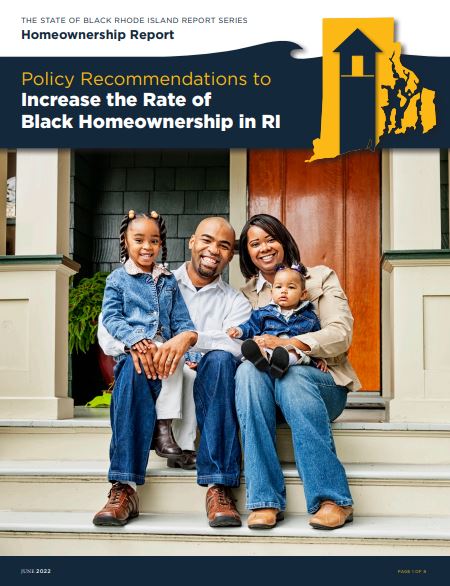PROVIDENCE – Even though approximately 3 in 5 Rhode Islanders own a home, the number of Black homeowners within the Ocean State is lower than the national rate. Plus, prospective Black homeowners are at higher risk in facing various barriers in achieving a home to call their own.
That’s according to a new “State of Black Rhode Island’s Homeownership Report,” released Friday by the United Way of Rhode Island. The report, done in partnership with the United Way and the Brown University School of Public Health, outlines disparities between Black homeownership and overall homeownership in Rhode Island compared to the rest of the state – and the country – as well as opportunity disparities for Black Rhode Islanders to acquire a home.
The report, which can be read here, states that 65% of Americans in 2019 owned a home, and just 42% of Black Americans were homeowners. The numbers in Rhode Island are worse, with only 34% of Black Rhode Islanders owning a home that year, according to the report. Sixty-two percent of Rhode Islanders were homeowners in 2019, the report states.
Additionally, the report states that the R.I. Commission for Human Rights in 2019 received 330 reports of violations of the state’s Fair Housing Practices Act. The law, prohibits discrimination in housing-related transactions because of race, color, religion, national origin, sex, disability or familial status. Out of those claims, about 1 in 5 were related to race, per the report.
The report also notes disparities in Black Rhode Islanders’ loan applications being approved. In 2020, 10% of the 1,288 Black applicants were denied a loan, whereas 6% of the 16,037 White applicants were denied loans for homeownership. Plus, the COVID-19 pandemic has constrained housing opportunities in the state, the report says, and constraints on low inventory “may worsen Black Rhode Islanders’ ability to purchase a home.”
“Homeownership is one component of the American dream, and it is critical that more Black Rhode Islanders have access to homeownership,” Brown School of Public Health associate professor Akilah Dulin said in a statement. “Our report not only presents some of the reasons why gaps in homeownership persist for Black Rhode Islanders, but also specific policies that can reduce structural barriers to homeownership for Black Rhode Islanders.”
The report also noted multiple recommendations to increase Black homeownership in the state. Among them, United Way said, are creating financing programs for Black homebuyers with lower credit scores, expanding the capacity of local community development networks, and increasing access to programs offered through the U.S. Housing Administration and U.S. Housing and Urban Development that target lending to Black people.
James Bessette is the PBN special projects editor, and also covers the nonprofit and education sectors. You may reach him at Bessette@PBN.com. You may also follow him on Twitter at @James_Bessette.













